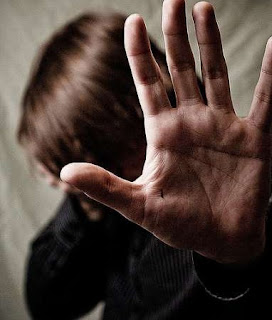As soon as I open my waiting room door, I can tell that
Marsha isn’t doing well. Usually a warm, bubbly woman with a ready smile, today
she seems sad, subdued.
“It’s been a bad week,” she says. “I’m not sure I even
mentioned this to you before because Bruce was so sure it would be nothing and
you know me, I’m more than happy to ignore things until they slap me in the
face. Well, I got slapped in the face. Bruce has prostate cancer.”
 Oh no, I think to myself, trying to keep my face impassive.
My husband had prostate cancer. He died of prostate cancer. Memories flood me.
When he first told me. When the radioactive seeds were implanted. When he
started hormone injections. The years of the cancer being under control. Until
it wasn’t.
Oh no, I think to myself, trying to keep my face impassive.
My husband had prostate cancer. He died of prostate cancer. Memories flood me.
When he first told me. When the radioactive seeds were implanted. When he
started hormone injections. The years of the cancer being under control. Until
it wasn’t.
“I’m not sure I understand all the details,” she says, “but
I guess it’s past the stage of watchful waiting. So now we have to make all
these decisions. I mean, I know they’re Bruce’s decisions, but obviously he
wants my input. He’s only 58 years old. He’s scared of the surgery, the
possibility of impotence or incontinence or both. I don’t much like the idea
either. We’ve always had a great sex life. That’s been the glue through our ups
and downs.”
58. A long time for the cancer to have to be kept under
control. George was in his early 70s when he was first diagnosed. We didn’t
want the surgery either. Not only for the reasons Marsha mentioned, but because
George had recently had some heart difficulties and I was especially anxious
about him having general anesthesia. It was a decision I often regretted. I
remember my aunt saying, “Take it out! Take it out! Take it out!”
But this is not my decision. Neither my experience nor my
bias should influence Marsha. I think about my book, Love and Loss. Marsha has never mentioned it, so I doubt she’s read
it. If she had, she’d certainly know about my experience. Would if influence
her? Perhaps. It’s one of the difficulties I considered before writing a book
so filled with self-disclosures.
“You look sad,” Marsha says, bringing me out of my reverie.
Obviously my feelings are showing. “Yes,” I say. “I’m sad,
sad that you and Bruce have to deal with this pain.”
It’s true. More accurately, it’s half true. I feel sad for
Marsha and sad for me. Although I don’t need Marsha’s misfortune to remind me
of George’s cancer and its progression, Bruce’s cancer does bring those
memories and feelings to the fore once again.
Marsha begins to cry. “It’s so unfair. We’ve just gotten our
kids off to college and all the problems we had with Lawrence. I never thought
he’d straighten out. But he did. And there’s taking care of our parents who
aren’t doing so great either. The sandwich generation! Except now we’re being
eaten!”
This is the other side of Marsha. As she said, she’s usually
able to ignore difficult things. But when they hit her in the head she’s
blind-sided, her defenses fall away, and she’s left drowning in misery.
 “It isn’t fair, Marsha. But life isn’t. We never know what
will happen. You’re not someone who’s constantly worrying about all the
terrible things that might happen and that’s good. But now you’re faced with a
very scary, painful situation where it’s not at all clear what path you want to
take and what the consequences of that path may be.”
“It isn’t fair, Marsha. But life isn’t. We never know what
will happen. You’re not someone who’s constantly worrying about all the
terrible things that might happen and that’s good. But now you’re faced with a
very scary, painful situation where it’s not at all clear what path you want to
take and what the consequences of that path may be.”
“What would you do if it was your husband?”
Danger, I think to myself. “Well, first I think I’d talk to
your doctors. Maybe more than one of them. Get their opinions. Find out what
your options are. Weigh them.”
“But what would you do?”
Is Marsha unconsciously picking up that I do have an
opinion? Am I stonewalling if I say nothing? Am I stepping outside the bounds
of my therapist role if I say anything? Then I realize that prostate cancer is
the only disease that would place me in this dilemma. With other cancers I
wouldn’t have an opinion. I’m relieved. I feel clearer.
“Marsha, I wonder why you keep asking me for my opinion. I
know you’re scared and maybe that makes you feel more in need of an authority
figure to tell you what to do. But I’m not an authority here, I’m not an
oncologist. I’m certainly here to listen to your pain, your fear, your
indecision, but I can’t tell you what to do. I don’t know.”
And I realize that’s true. My husband’s cancer doesn’t make
me an expert. I don’t know what Marsha should do. My experience is irrelevant.






